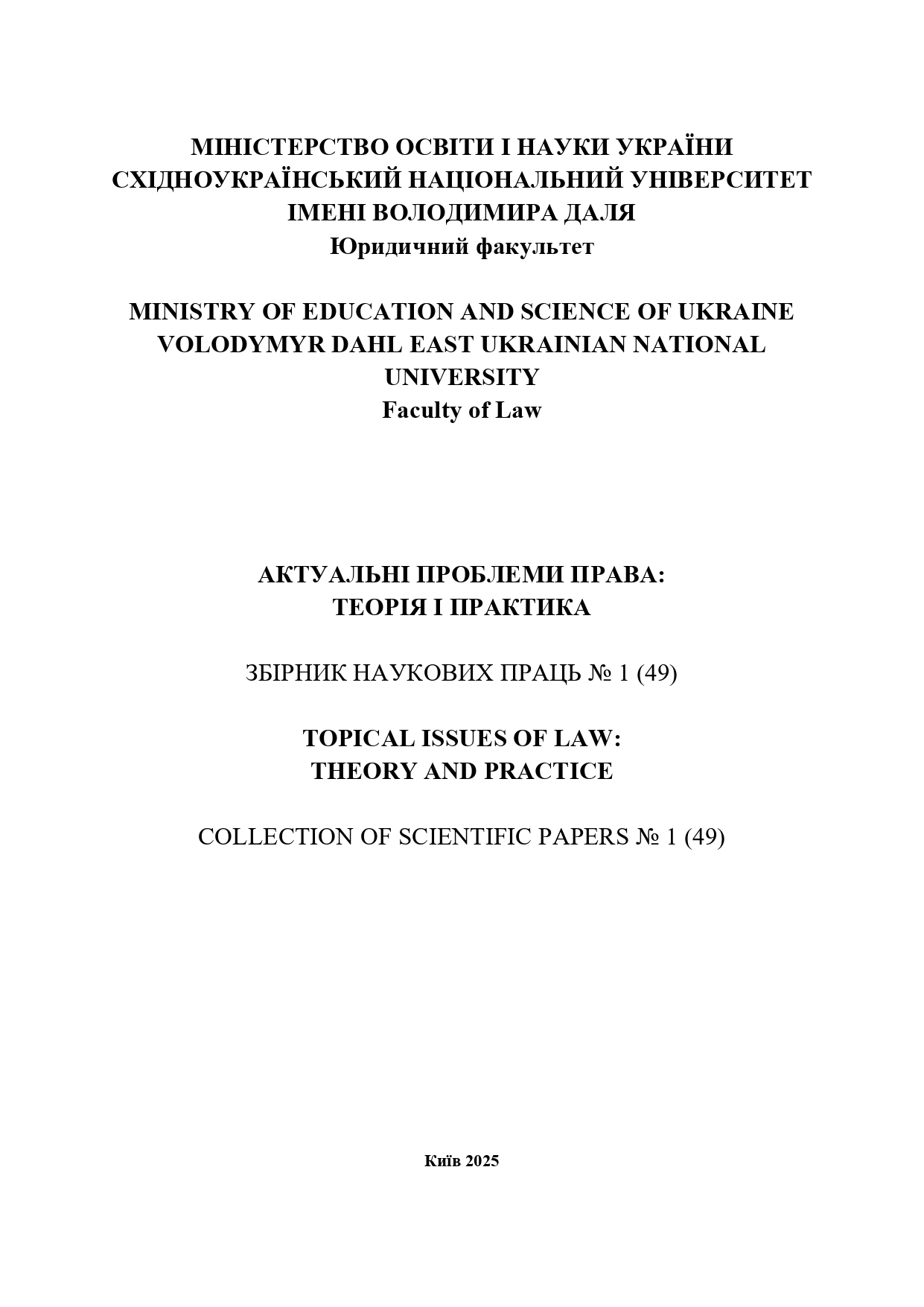DEVELOPMENT OF LEGAL MECHANISMS FOR SOCIAL PROTECTION IN ARMED CONFLICTS: A HISTORICAL PERSPECTIVE
DOI:
https://doi.org/10.33216/2218-5461/2025-49-1-76-88Abstract
The article examines the evolution of legal
mechanisms for social protection in the context of
armed conflicts from a historical perspective. It
analyzes key international and national legal acts
regulating social guarantees for affected population
groups, including military personnel, veterans,
internally displaced persons, and civilians. The study
explores the historical development of international
humanitarian law (IHL), starting with the Hague and
Geneva Conventions, which laid the foundation for
modern legal regulation of social protection in
wartime conditions. Particular attention is given to
the role of international organizations such as the
United Nations, the International Committee of the
Red Cross, and the Council of Europe in establishing
and implementing protection standards for those
affected by military conflicts. The article separately
examines the development of national legislation in
this area, particularly legal mechanisms for the social
security of individuals affected by hostilities. The
evolution of relevant legal norms in various countries
experiencing military conflicts is traced, with a
particular focus on Ukraine's experience, where new
mechanisms of social protection for affected citizens
are being developed and implemented amid ongoing
military aggression. The effectiveness of existing legal mechanisms in different historical periods is analyzed,
including their adaptation to new challenges such as
internal and international armed conflicts, hybrid
wars, and terrorist threats. Key issues in the
implementation of social protection in wartime
conditions are identified, including insufficient
financial resources, bureaucratic obstacles, and
violations of international law. The research findings
indicate the need to improve legal mechanisms for
social protection in response to modern challenges
and to strengthen international cooperation in the
field of humanitarian law. Suggestions for improving
the legislative framework are proposed, taking into
account international experience and post-conflict
recovery practices. The conclusions and
recommendations obtained can be useful for legal
practitioners, researchers, government bodies,
international organizations, and civil society engaged
in addressing social protection issues in armed conflict conditions.
Keywords: martial law, Geneva Conventions, armed conflict, international humanitarian law (IHL), human rights, social protection system, social protection.

